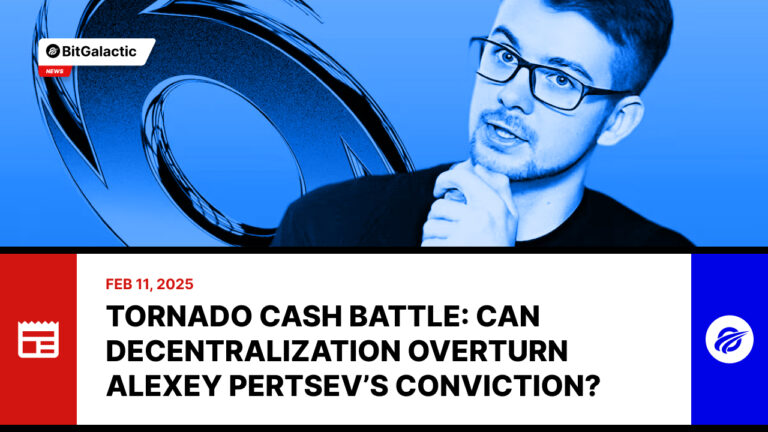Tornado Cash Battle: Can Decentralization Overturn Alexey Pertsev’s Conviction?
The case of Alexey Pertsev, the Tornado Cash developer convicted of facilitating money laundering, has reignited a critical debate: Who should be held responsible for the misuse of decentralized technology?
His lawyer, Judith de Boer, is now leading the appeal, arguing that the Dutch court fundamentally misapplied the law when it sentenced Pertsev to over five years in prison. The heart of her defense? Tornado Cash wasn’t controlled by any individual—it ran on immutable smart contracts.
A Global Legal Battle Over Decentralization
Pertsev’s conviction marked a controversial moment in the crypto space. Privacy advocates criticized the ruling, claiming it set a dangerous precedent where developers could be held liable for how people use their code.
The case has now taken a surprising turn—a U.S. court decision could indirectly bolster Pertsev’s appeal. In November, an appeals court in New Orleans ruled that the U.S. government had wrongly sanctioned Tornado Cash under national security laws, stating that immutable smart contracts are not people or entities. OFAC later backed down, choosing not to challenge the ruling.
BitGalactic’s Take: Is This a Win for Crypto?
From a macro perspective, this legal battle represents a high-stakes test for decentralization. If the Dutch appeal court sides with Pertsev, it could set a strong precedent protecting developers of decentralized protocols. If not, the ruling could open the door for more legal actions against blockchain devs worldwide.
Tornado Cash, like Bitcoin and other decentralized platforms, is permissionless by design. Holding developers criminally accountable for autonomous code could have massive chilling effects on innovation in Web3.
What’s Next?
As Pertsev awaits his final showdown in court, his legal team is rallying support, with Pertsev himself stating on X:
“Freedom is priceless, but my freedom costs a lot of money.”
Meanwhile, the U.S. trial of his fellow developer, Roman Storm, in April could further reshape the landscape.
Will this case define the future of decentralization in crypto? Stay tuned as BitGalactic continues to follow this landmark battle.
Share this post


